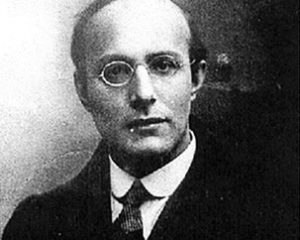
by Dominic Corva, Social Science Research Director
In “The Great Transformation” (1944) economic historian Karl Polanyi considered the rise of the international capitalist order out of the historical conditions set in motion by the collapse of the West’s fuedal-theocratic order. Polanyi’s story elaborated a key analytical concept for our times: “creative destruction,” the process whereby growth and global “order” were created by destroying the lives and livelihoods that depended on that order — that political and economic liberalism did not come from nowhere, but built with and upon the remains of social orders everywhere. This was not strictly a moral critique, but an analytical one: that it happened matters far more than what one thinks of the result. It can however guide us in our search for peaceful cannabis policy.
Without getting too “ivory tower,” I want to use this post to consider the concept of creative destruction as it applies to current cannabis markets and social orders. The movement to end prohibition has little to do with the movement of previously informal markets, people, and knowledge into the “normal” routines and practices of capitalism, but it is clear that cannabis market legalization (different from cannabis legalization) involves a radical restructuring of human lives and livelihoods. For every job created in legal cannabis, an “informal sector” livelihood has been destroyed, even if that job is occupied by someone previously operating in the informal market. For every giant, investor-owned warehouse that becomes regulated (in theory, anyway) and taxed, dozens of small producers have been put out of business. This is certainly the case in Washington, but does not have to be the case elsewhere.
The closer a State gets towards bringing informal markets into the system, the less social impact this destruction has on the existing order. As we put thousands of independent owner-operators out of business, it’s important to remember that these folks were previously able to pay their rent, bills, and groceries, and now they can’t. This creates a social problem that the State of Washington is clearly nowhere near being concerned about, but affects our neighborhoods, our churches, our schools, and our stability.
This isn’t just the case for home growers. It’s especially the case for minority-dominant neighborhoods, where white-owned and operated businesses are putting people of color out of work — people who never had a chance, at all, to be part of the new legal markets given the incredibly high barriers to entry and short, closed windows to even apply.
One thing about medical cannabis markets — as ubiquitous and apparently offensive to policymakers as they were — is that even the “bad actor” access points that barely catered at all to patients did everyone a major social service. They got a lot of cannabis off the streets and into an orderly space. The lack of formal regulation made barriers to entry extremely low, and plenty of folks who can barely function in the normal social order were able to get and keep jobs that made them happy. Some of that was the ability to consume cannabis while they worked! That’s also been destroyed by I 502 and its legislative changes, so much so that I 502 businesses have trouble educating their employees and providing samples.
But the destruction of medical cannabis businesses is most certainly creating non-I 502 jobs, too. Black market job creation is happening, possibly as fast as I 502 job creation, and those aren’t the jobs anyone wanted to create, on the one hand, or go back to, on the other. Given the State’s interest in destroying the black market, I’m pretty sure this isn’t an outcome that the State wants either. At the same time, white-owned retailers who are tone-deaf to the experience of gentrification are stoking the fires of neighborhood resentment.
Let’s consider those I 502 jobs as a mixed bag, though, not just the colonial expropriation of skills, time, investment, and lives by Big Money investors and real estate sharks. Informal markets are notoriously volatile, and being an entrepreneur reliant upon handshakes instead of contracts can be incredibly risky and stressful. Those handshakes, when they do work out, are incredible: they replace credit and threats of lawsuits with trust and human, face-to-face, construction of interdependence. And let’s be clear, there would be no informal cannabis markets now — no formal ones either — if those networks of trust and outlaw community didn’t pay off more often than not.
One more extremely socially optimal outcome is associated with I 502’s “creative destruction” should be highlighted, and it’s a doozy as far as I’m concerned. In Washington, we are replacing a mostly indoor, import cannabis market with what will eventually be a mostly outdoor, environmentally friendly and local one. Eastern Washington is experiencing the beginnings of a sustainable agricultural industry that fits very well into its agriculture-dependent social orders. Virtual ghost towns are being revived: the city of North Bonneville has pioneered a public-private cannabis partnership that means a future instead of extinction. The latest numbers I’ve received from trusted sources indicate that we have a ways to go, but considering that Washington State had so little sun-grown, ecologically sustainable cannabis before I 502 was passed, we’ve come a long way.
The broader implication of these kinds of creative destruction is clear. If States simply make bridges for the previous order to come in and own their own experience, skills, and livelihoods –rather than crush them through unnecessary legislative fiat — the social peace can be optimized. We live in an incredibly and increasingly unequal society, and prohibition was a tool for making that happen. Post-prohibition markets must not reinforce that process. It’s not good for anyone. Let the livelihoods transform themselves, instead of being thrown away like the disposable citizens they seem to be.